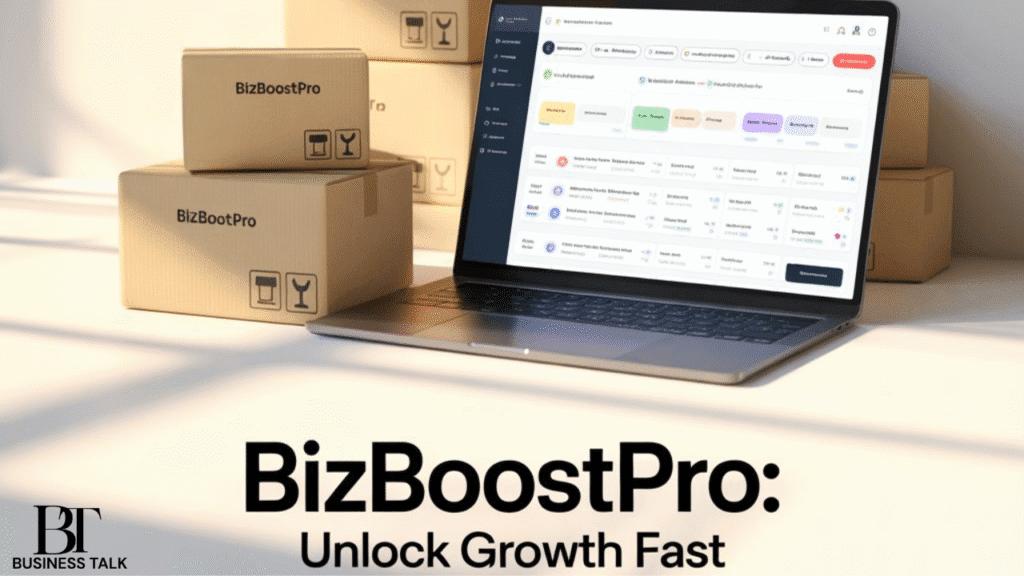In today’s fast-paced digital economy, companies across the United States are increasingly turning to SixSigma Cloud Solutions ERP to streamline operations, boost productivity, and improve decision-making. ERP (Enterprise Resource Planning) systems have always been critical for integrating business functions, but with the addition of cloud technology and Six Sigma principles, the results are transformative. By combining data-driven process improvement with the scalability of cloud ERP, organizations are discovering powerful ways to achieve sustainable growth and operational excellence.
The Evolution of Technology with SixSigma Cloud Solutions ERP
Traditional ERP systems were once limited to large corporations, requiring extensive infrastructure and significant upfront investment. However, the shift toward cloud computing has democratized ERP access, making it more affordable, scalable, and adaptable to businesses of all sizes. Cloud ERP platforms now allow real-time data access, seamless integration across departments, and improved collaboration.
When SixSigma Cloud Solutions ERP is applied, it takes this transformation one step further. By embedding Six Sigma’s methodology of eliminating defects and inefficiencies into ERP workflows, businesses are able to move beyond automation and achieve measurable improvements in quality and performance.
According to Dr. Sarah Thompson, Professor of Information Systems at Stanford University, “The integration of Six Sigma methodologies into ERP systems creates a continuous cycle of performance monitoring, error reduction, and value creation. This ensures that ERP is not only an operational tool but also a driver of innovation and strategic advantage.”
SixSigma Cloud Solutions ERP in Business Operations
The primary strength of ERP lies in its ability to unify different functions—finance, HR, supply chain, sales, and customer service—into a single platform. Six Sigma principles enhance this unification by focusing on measurable outcomes, process improvement, and customer satisfaction.
For example, in supply chain management, ERP systems already track inventory and demand forecasting. With Six Sigma integrated, businesses can identify recurring inefficiencies such as delivery delays or overstock issues and implement corrective measures. Similarly, in customer service, ERP provides the data while Six Sigma drives analysis to improve resolution times and customer satisfaction scores.
In the U.S., industries ranging from healthcare to retail have adopted SixSigma Cloud Solutions ERP to improve workflows, reduce waste, and enhance profitability. By leveraging cloud-based analytics, businesses can make evidence-based decisions faster, ensuring they remain competitive in rapidly evolving markets.
Why Cloud-Based ERP Matters Today
The move toward cloud ERP is not simply about convenience—it represents a strategic necessity. Companies need systems that are scalable, secure, and adaptable to the challenges of remote work and globalized markets. Unlike on-premise ERP, cloud ERP reduces IT overhead, ensures automatic updates, and offers flexible subscription models.
Moreover, cloud ERP enables remote collaboration, which has become vital in the post-pandemic era. With employees distributed across locations, cloud systems ensure real-time access to data, seamless integration of workflows, and uninterrupted operations. When paired with Six Sigma’s focus on precision and process control, businesses can unlock new levels of efficiency.
Key Advantages of SixSigma Cloud Solutions ERP
The benefits of combining cloud ERP with Six Sigma are multifaceted:
- Data-Driven Decision-Making: Cloud ERP centralizes data while Six Sigma methodologies analyze it for actionable insights.
- Scalability and Flexibility: Cloud-based platforms grow with business needs without requiring major infrastructure changes.
- Operational Excellence: Six Sigma ensures continuous improvement and error reduction across all business functions.
- Enhanced Customer Satisfaction: Businesses can improve service quality and responsiveness by using real-time insights.
- Cost Efficiency: By reducing waste and improving efficiency, organizations save on both operational and IT costs.
These benefits align with Google Scholar research, which highlights that ERP combined with continuous improvement methodologies improves long-term organizational resilience and competitiveness.
Industry Use Cases in the United States
Different industries are experiencing unique advantages from SixSigma Cloud Solutions ERP:
- Healthcare: Hospitals use cloud ERP to manage patient data securely while Six Sigma ensures streamlined processes and reduced errors in patient care.
- Manufacturing: Manufacturers rely on ERP for inventory control and production planning. With Six Sigma, they minimize defects and reduce downtime.
- Retail: ERP enables real-time sales and supply chain management, while Six Sigma ensures demand forecasting accuracy and reduced stockouts.
- Finance: Financial firms use ERP to automate compliance reporting, and Six Sigma enhances accuracy in risk management.
Each case demonstrates how the fusion of cloud technology and Six Sigma goes beyond traditional ERP functionality, delivering measurable results.
Addressing Challenges and Concerns
While the potential of SixSigma Cloud Solutions ERP is immense, challenges do exist. Concerns about data security, integration complexities, and change management often arise when adopting new systems. However, cloud ERP providers have strengthened cybersecurity measures, including encryption and multi-factor authentication, to address these risks.
Change management remains another critical factor. Employees often resist new systems due to lack of familiarity. Organizations must therefore invest in proper training and foster a culture that embraces continuous improvement. With the right strategy, these challenges can be overcome, ensuring smooth implementation and long-term success.
Future Outlook for SixSigma Cloud Solutions ERP
The future of ERP lies in deeper integrations with emerging technologies such as artificial intelligence, machine learning, and the Internet of Things (IoT). Cloud ERP will increasingly rely on predictive analytics to anticipate market trends and customer needs. Six Sigma principles will remain relevant by ensuring these advanced technologies are applied effectively and without introducing new inefficiencies.
As organizations across the United States seek competitive advantage, the adoption of SixSigma Cloud Solutions ERP will continue to grow. Its ability to drive continuous improvement, align with customer needs, and adapt to technological changes makes it one of the most powerful tools for business transformation.
Conclusion
The integration of Six Sigma methodologies with cloud ERP is more than a trend—it represents a paradigm shift in how businesses operate. By combining the efficiency of cloud technology with the precision of Six Sigma, organizations can achieve operational excellence, improve customer satisfaction, and remain resilient in a dynamic marketplace.
For U.S. companies, embracing SixSigma Cloud Solutions ERP is not simply about adopting new technology; it is about adopting a mindset of continuous improvement and innovation. As industries evolve, this approach will ensure businesses not only survive but thrive in an increasingly competitive landscape.






Pingback: AI Driven ERP Systems Future of Nusaker: Transforming Business Forever
Pingback: Cybersecurity Pitch Deck to Investor PPTX: 7 Proven Strategies to Win Startup Funding